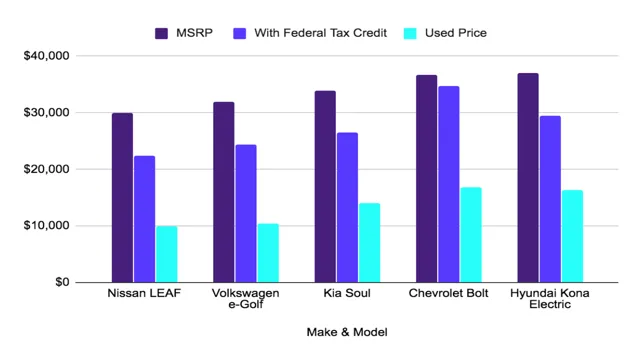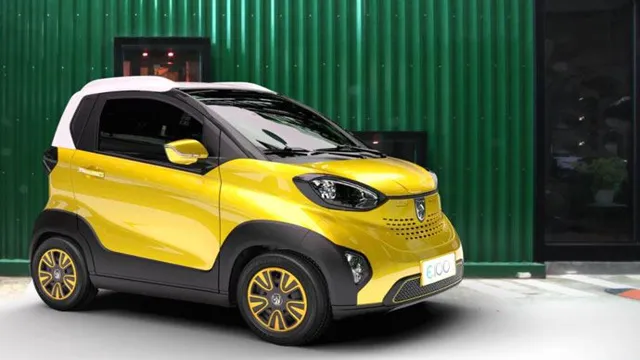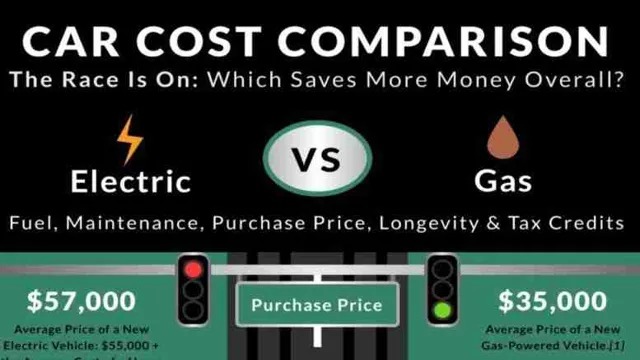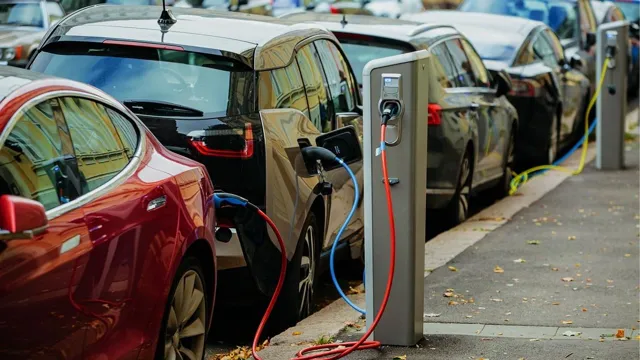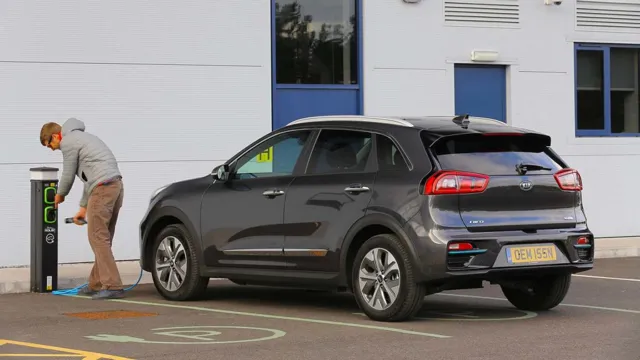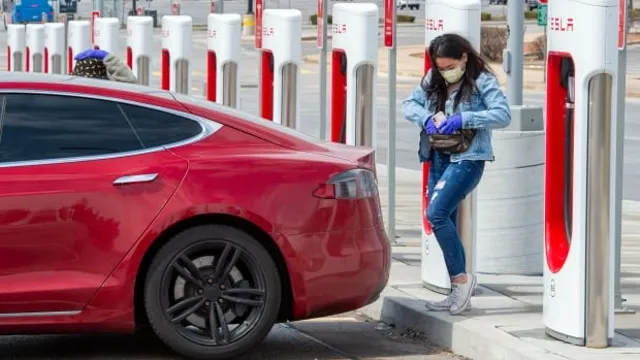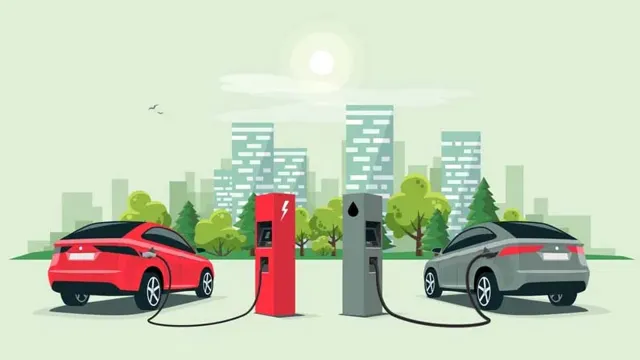The Shocking Truth: Uncovering the Average Cost of Maintaining an Electric Car
Electric cars are becoming an increasingly popular choice for environmentally conscious individuals who want to minimize their carbon footprint. But, as with any major purchase, it’s important to consider the ongoing costs of owning an electric car, including the cost of maintenance. With fewer moving parts and no need for oil changes, it’s often assumed that electric cars are cheaper to maintain than their gas-powered counterparts.
But is this really the case? In this blog, we’ll explore the cost of maintaining an electric car and compare it to the cost of maintaining a traditional gas-powered car, so you can make an informed decision on whether an electric car is right for you.
Introduction
When it comes to the cost of maintaining an electric car, the good news is that it’s generally much cheaper than maintaining a traditional gas-powered vehicle. The average cost for maintaining an electric car is around $500 per year, which is significantly less than the average cost of maintaining a gas car, which can be upwards of $1,000 per year. There are a few reasons for this cost discrepancy, but one of the biggest factors is that electric cars have fewer moving parts than gas cars.
This means that there are generally fewer things that can go wrong and need to be fixed or replaced over time. Additionally, electric motors are typically simpler and more efficient than gas engines, which means that they require less maintenance overall. So if you’re thinking of switching to an electric car but are worried about the ongoing costs, rest assured that you’ll likely be saving money in the long run.
Explaining the benefits of owning an electric car
Electric cars have become increasingly popular in recent years due to their numerous benefits for the environment and the driver. They are powered by electricity rather than gasoline and produce significantly fewer emissions, making them an excellent choice for those who want to reduce their carbon footprint. Owning an electric car provides numerous benefits, including significant long-term cost savings on fuel and maintenance, improved driving experience, and a reduced environmental impact.
Furthermore, electric cars are extremely quiet, reliable, and require minimal maintenance compared to traditional gasoline-powered cars. With the increasing availability of infrastructure such as electric charging stations, owning an electric car has never been easier. So if you are looking for an eco-friendly and cost-effective alternative to traditional gasoline-powered cars, consider investing in an electric car today!

Upfront Costs
When it comes to buying an electric car, one of the biggest concerns that many people have is the upfront cost. While electric cars can be more expensive to purchase than traditional gas-powered vehicles, they often have much lower maintenance costs over time. In fact, the average cost of maintaining an electric car is significantly lower than a gas-powered vehicle.
This is because electric vehicles have fewer moving parts, which means fewer things that can break or wear out over time. Additionally, electric cars don’t require oil changes, and they have regenerative braking, which helps recharge the battery and extends the life of the brake pads. While the upfront cost may be a bit higher, the long-term savings on maintenance costs can quickly add up, making electric cars a great investment for those who want to save money in the long run.
Price comparison between electric and gas cars
When it comes to upfront costs, electric cars tend to have a higher price tag than their gas-powered counterparts. This is due to the technology involved in producing electric cars. However, it’s important to consider the long-term savings that come with owning an electric car.
Electric cars have lower maintenance costs because they don’t require oil changes or the replacement of spark plugs and transmission fluids like gas cars do. Additionally, electric cars can be powered by low-cost electricity at home, while gas cars require expensive gasoline from the gas station. Ultimately, while electric cars may cost more upfront, the savings in the long run can make them a more affordable option overall.
Long-Term Savings
When it comes to owning an electric car, one of the benefits is the long-term savings. While the upfront cost may be more expensive compared to a conventional gas-powered vehicle, the savings in the long run make up for it. The average cost of maintaining an electric car is significantly lower than a gasoline car.
Since there are fewer moving parts, there is less wear and tear, which means less time and money spent on maintenance. Additionally, the cost of electricity is typically less expensive than gasoline. With this in mind, owners can save a significant amount of money on fuel costs over time.
Moreover, electric cars generally have a longer lifespan than traditional cars, which means fewer replacements and repairs over the years. Overall, while the upfront cost may seem daunting, the long-term savings and benefits of owning an electric car are worth considering.
Lower fuel and maintenance costs
Lower fuel and maintenance costs can lead to significant long-term savings for vehicle owners. By choosing fuel-efficient vehicles, drivers can reduce their fuel expenses, especially if they do a lot of travelling. Hybrid and electric vehicles are known for having lower fuel costs, so they can be a great option for eco-conscious car owners concerned with prices at the gas pump.
Furthermore, modern vehicles have engines that require less maintenance, reducing the cost of regular upkeep. Regular maintenance is still necessary for all cars, but choosing a vehicle that requires less maintenance can lead to substantial savings in the long run. By investing in a fuel-efficient, low-maintenance vehicle, drivers can save money on routine maintenance and fuel costs, while minimizing their carbon footprint.
Maintenance Costs
When it comes to maintaining an electric car, the costs are significantly lower than those of a traditional gasoline-powered vehicle. The average cost of maintaining an electric car is around $500 per year, while a traditional car can cost upwards of $1,200 per year. This is because electric cars have fewer moving parts and require less maintenance.
In fact, the most significant maintenance costs associated with an electric car are often related to the battery. However, as battery technology improves, these costs are gradually decreasing. In addition to reduced maintenance costs, electric cars also offer significant savings on fuel costs.
Since electric cars are powered by electricity, the cost of charging is significantly lower than the cost of gasoline. For these reasons, electric cars are becoming an increasingly popular choice for individuals looking to save on both maintenance and fuel costs.
Examining common maintenance tasks and costs
When it comes to maintaining your property, it’s important to consider the costs associated with common maintenance tasks. Some of the most common maintenance tasks include landscaping, plumbing repairs, and electrical updates. These tasks can add up quickly, but keeping up with them is necessary for the longevity and safety of your property.
Landscaping costs vary depending on the size of your property and the types of plants and materials you use. Plumbing repairs can range from minor leaks to major pipe replacements, which can be costly. Electrical updates, like replacing outdated circuit breakers or rewiring your home, can also be expensive.
It’s important to budget for these maintenance tasks and address them as soon as possible before they become even more costly issues. By staying on top of these maintenance tasks, you can ensure that your property is in good condition and avoid more costly repairs in the future.
Battery Replacement Costs
Electric cars are becoming more popular, but many potential buyers are concerned about the cost of maintaining an electric vehicle. One of the most significant expenses associated with electric cars is battery replacement costs. Battery replacement costs can vary depending on the make and model of the car, as well as the age of the vehicle.
On average, the cost of replacing an electric car battery can range from $3,000 to $5,000, which is a significant chunk of change. However, it’s worth noting that battery technology is rapidly improving, and the cost of replacement batteries is expected to decrease in the future. Additionally, some car companies offer warranties that cover battery replacement costs for a certain period, which can provide peace of mind for buyers.
Overall, the average cost of maintaining an electric car is still lower than that of a gas-powered car, thanks to the reduced need for oil changes and other routine maintenance.
Factors impacting battery life and replacement costs
When it comes to electric vehicles (EVs), battery replacement costs can be a major concern for vehicle owners. The battery pack is one of the most expensive components of an EV, and its replacement cost can vary depending on the make and model of the vehicle. Generally, the cost of replacing the battery pack can be anywhere from $5,000 to $20,000 or more.
However, battery technology is evolving rapidly, and as battery production increases, the cost of a replacement battery should continue to decrease over time. While EV batteries are generally designed to last for several years, several factors can impact their lifespan, including extreme temperatures, frequent fast charging, and overall usage patterns. Proper maintenance and care can help extend the life of an EV battery and reduce the need for a costly replacement.
Conclusion
In conclusion, when it comes to the average cost of maintaining an electric car, it all boils down to one word: savings. While the initial investment may be higher, the long-term benefits of lower fuel costs, reduced maintenance needs, and incentivized tax breaks make it a financially smart choice. Plus, you get to feel like a futuristic eco-warrior every time you hit the road.
So, if you’re looking to electrify your ride and your wallet, an electric car is the way to go.”
Summarizing the cost savings of owning an electric car
When it comes to owning an electric car, battery replacement costs may seem like a major concern for many consumers. However, the truth is that battery replacement costs are much less of a worry than many expect. In fact, electric car batteries are built to last much longer than traditional gasoline engines, with most lasting up to 100,000 miles or more.
Additionally, as the technology behind electric vehicles continues to evolve and improve, battery replacement costs have been steadily declining over the years. Some car manufacturers even offer warranties on their batteries that last up to 8 years or more. Overall, when you consider the cost savings from not having to buy gasoline, as well as the increased efficiency and reliability of electric cars, the potential savings far outweigh any concerns about battery replacement costs.
So, if you’re thinking about making the switch to electric, don’t let the fear of battery costs hold you back – the benefits you’ll receive are worth it in the end.
FAQs
What is the average annual maintenance cost of an electric car?
The average annual maintenance cost of an electric car ranges from $400 to $700, which is significantly lower than a gasoline car.
How much do electric car batteries cost to replace?
The cost of replacing an electric car battery can vary significantly, ranging from $3,000 to $10,000, depending on the make and model.
Do electric cars require more maintenance than gasoline cars?
No, electric cars generally require less maintenance than gasoline cars due to their simplified designs and fewer moving parts.
Can I perform maintenance on my electric car myself, or do I need to take it to a specialized mechanic?
While some maintenance tasks, such as tire rotations and brake pad replacements, can be performed by a DIY enthusiast, more specialized tasks should be handled by a trained electric vehicle technician.
Do electric cars require specialized maintenance equipment?
While some electric car components require specialized maintenance equipment, such as the high-voltage battery system, many routine maintenance tasks can be performed with standard automotive tools.
